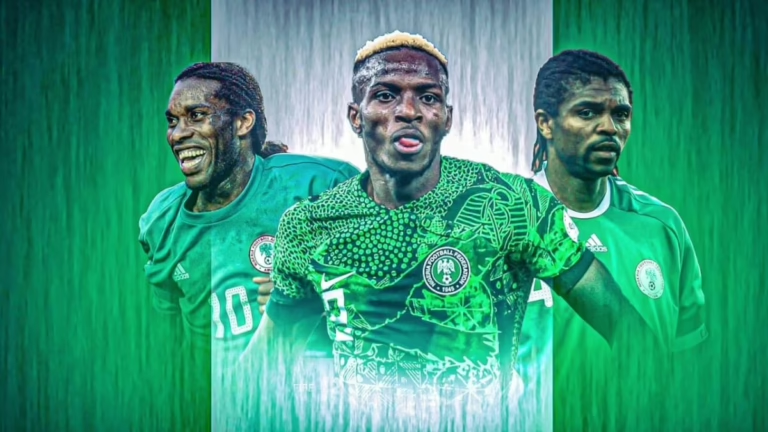In Nigeria, football transcends mere sport-it embodies a collective identity and serves as a unifying force that resonates from Lagos to Kano, and from Port Harcourt to Kaduna. For generations, the Super Eagles’ green and white kit has stood as a symbol of national pride, endurance, and solidarity. Yet beneath the fervent celebrations and emotional moments, Nigerian football is experiencing a significant evolution.
Spanning from humble neighborhood fields to state-of-the-art arenas abroad, Nigeria’s football landscape is rapidly advancing-embracing technological innovation, economic growth, and cultural shifts. The nation’s progression from nurturing grassroots talent to gaining international acclaim highlights not only athletic prowess but also the pioneering spirit driving Africa’s sports future.
Transitioning from Informal Play to Organized Competitions
For countless Nigerians, football’s roots lie in informal street matches rather than formal training centers. These spontaneous games foster creativity and raw talent, producing legends such as Jay-Jay Okocha with his flair, Kanu Nwankwo’s strategic brilliance, and Victor Osimhen’s relentless drive.
Over the past ten years, however, Nigerian football has shifted towards a more structured framework, supported by professional clubs, youth academies, and private sector investments. The Nigeria Professional Football League (NPFL) has made notable progress in governance reforms, enhancing player welfare, and expanding its reach through digital platforms.
Supporters now enjoy real-time access to NPFL fixtures via live-score websites like Nowgoal.ink, which provide instant match updates, detailed statistics, and league tables covering both domestic and international contests. These digital innovations have effectively connected local enthusiasm with a global audience, offering fans and talent scouts worldwide an up-close view of Nigeria’s football renaissance.
Embracing Digital Innovation in Nigerian Football
Technology has revolutionized every aspect of football in Nigeria-from gameplay and fan engagement to revenue generation. Previously reliant on radio broadcasts and next-day print reports, fans today receive live alerts, in-depth analytics, and player metrics directly on their mobile devices.
The widespread adoption of mobile internet across Nigeria and the broader African continent has been a catalyst for this transformation. Streaming services now air NPFL and CAF matches online, enabling millions to follow their favorite players from any location. Clubs are increasingly investing in social media teams and digital marketing, recognizing that a strong online presence attracts sponsorships and broadens fan bases.
Simultaneously, data-driven approaches are becoming integral to training regimens. Coaches utilize performance analytics to monitor player speed, positioning, and endurance, aligning local practices with international standards. Far from being a mere convenience, technology is reshaping the development pathways within Nigerian football.
Nigerian Footballers Making Waves Globally
Nigerian athletes rank among Africa’s most prominent football exports. Across continents-from Europe to Asia-they consistently garner attention not only for their skill but also for their professionalism and adaptability. Stars like Victor Osimhen (Napoli), Ademola Lookman (Atalanta), and Samuel Chukwueze (AC Milan) exemplify a new era of Nigerian football: modern, disciplined, and globally competitive.
Their achievements inspire aspiring players nationwide. Unlike in the past, when exposure was limited, talent scouts now leverage online databases, video highlights, and live-score platforms to identify promising players throughout Nigeria’s leagues. The pathway to international careers has broadened, opening doors for both financial advancement and professional growth.
Yet, the most significant triumph lies in Nigeria’s growing reputation as a consistent producer of world-class talent. The country’s representation in elite European leagues validates its domestic football infrastructure, encouraging local clubs to enhance facilities and management practices.
Ongoing Obstacles in Nigerian Football
Despite notable advancements, Nigerian football continues to grapple with several challenges. Many regions suffer from outdated infrastructure, with substandard pitches compromising player safety and performance. Numerous clubs face issues such as delayed wages, insufficient sponsorship, and a lack of financial transparency.
Broadcasting rights and commercial partnerships-critical revenue streams-remain underdeveloped compared to African counterparts like South Africa and Egypt. Administrative reforms are essential to ensure that on-field progress is matched by effective governance off the pitch.
Additionally, the persistent exodus of young talent seeking opportunities abroad weakens the domestic league. Without robust contracts and clear development pathways, Nigeria risks losing its most promising players prematurely.
Grassroots Academies: Cultivating Tomorrow’s Champions
In response to these hurdles, football academies across Nigeria have emerged as vital incubators of talent. Institutions such as Mavlon FC in Lagos, the Pepsi Football Academy, and Real Sapphire are equipping young athletes with both technical expertise and mental resilience necessary for professional success.
Many academies now incorporate digital performance analysis, mentorship initiatives, and international collaborations, preparing their graduates to compete not only locally but on the world stage. The focus has shifted from merely identifying raw talent to nurturing well-rounded athletes-physically, mentally, and tactically.
This revitalized approach offers optimism that future Nigerian footballers will not only shine internationally but also elevate the NPFL’s stature across Africa.
The Economic Influence of Football in Nigeria
Football in Nigeria extends beyond passion; it is a significant economic driver. The sport creates employment, boosts tourism, and attracts investment in infrastructure. Local clubs are increasingly capitalizing on merchandising, ticket sales, and sponsorship deals. With improved governance, the NPFL has the potential to rank among Africa’s top three most lucrative leagues.
Private investors and betting firms are recognizing football as a promising growth sector. The adoption of transparent management practices, formal player contracts, and fan engagement strategies could transform the industry into a multi-billion-naira enterprise.
For government stakeholders, football represents a powerful tool for youth empowerment and national branding-offering a pathway to reduce unemployment while fostering social cohesion.
Envisioning the Future of Nigerian Football
As Nigeria moves further into the decade, the outlook for its football scene is increasingly optimistic. The fusion of digital advancements, youth development programs, and international exposure is reshaping the country’s sporting narrative.
In the near future, expect more Nigerian clubs to compete in continental tournaments, greater global broadcasting of domestic matches, and smoother transitions for players moving from the NPFL to top European leagues.
However, the most profound change lies not only in infrastructure or international acclaim but in mindset. Nigerian football is embracing data-driven decision-making, discipline, and systematic development alongside its innate passion. It is adopting professionalism and technology while preserving the vibrant spirit that has long defined its identity.






















